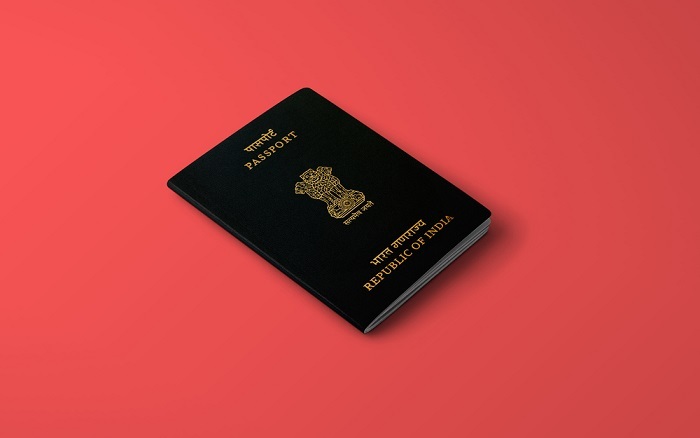
 Data Structure
Data Structure Networking
Networking RDBMS
RDBMS Operating System
Operating System Java
Java MS Excel
MS Excel iOS
iOS HTML
HTML CSS
CSS Android
Android Python
Python C Programming
C Programming C++
C++ C#
C# MongoDB
MongoDB MySQL
MySQL Javascript
Javascript PHP
PHP
- Selected Reading
- UPSC IAS Exams Notes
- Developer's Best Practices
- Questions and Answers
- Effective Resume Writing
- HR Interview Questions
- Computer Glossary
- Who is Who
Acquisition of Indian Citizenship
Introduction
Acquisition of Indian Citizenship: As per the structure and guidance of Indian constitution, the Acquisition of Indian citizenship is a quite complex process. This process also Includes its related rules, regulation, guidelines and eligibility criteria for it.
Candidates who are preparing for government exams, are preparing for Indian polity and Acquisition of Indian Citizenship is an important part of it. If you are also preparing for the same, then this article going to help you a lot. Please read this article completely for Understanding this topic completely.

So, let's start-
Acquisition of Indian Citizenship
Acquisition of Indian citizenship refers to the process by which a foreigner can become a citizen of India. The Indian Citizenship Act, 1955 lays down the rules and eligibility criteria for acquiring Indian citizenship.
The Act provides for the following categories of people who can acquire Indian citizenship:
Persons of Indian origin who are ordinarily resident in India for at least 5 years before making an application for citizenship.
Persons of Indian origin who are ordinarily resident in any country or place outside India.
Persons who are married to Indian citizens and are ordinarily resident in India for at least 5 years before making an application for citizenship.
Minor children of Indian citizens.
Persons who are of Indian origin and have been registered as Overseas Citizens of India (OCI) for at least 5 years.
The Act also provides for certain eligibility criteria and requirements that must be met in order to acquire Indian citizenship. These include:
The applicant must have resided in India for a certain period of time, depending on the category under which they are applying for citizenship.
The applicant must have a basic understanding of the Indian language and culture.
The applicant must be of good character and have no criminal record.
The applicant must be financially stable and capable of supporting themselves in India.
Th applicant must renounce their previous citizenship.
Eligibility criteria for naturalization include:
The applicant has resided in India for at least 12 years.
The applicant is of good character and has no criminal record.
The applicant has a basic understanding of the Indian language.
The applicant is financially stable and capable of supporting themselves in India.
The applicant has renounced their previous citizenship.
In order to be eligible for OCI status, a person must have been a citizen of India or the descendant of a citizen of India at some point in time, or be a spouse of a citizen of India or the descendant of a citizen of India.
Ways to Acquire Indian Citizenship
There are around 6 legal ways to acquire Indian citizenship. We have listed them all below-
By Birth
A person born in India on or after January 26, 1950, is considered a citizen of India by birth if at least one of their parents is an Indian citizen or they have lived in India for a certain period of time.
By Descent
A person born outside India can acquire Indian citizenship by descent if their father is an Indian citizen at the time of their birth.
By Registration
A person who is not a citizen of India but is married to an Indian citizen and has resided in India for a certain period of time can apply for citizenship by registration.
By Naturalization
A person who is not a citizen of India can apply for citizenship by naturalization if they have resided in India for a certain period of time, meet certain criteria, and fulfill other requirements.
By Incorporation of Territory
A person residing in a territory that becomes a part of India can become a citizen of India if they meet certain eligibility criteria.
By Citizenship by Overseas Citizenship of India (OCI):
Persons of Indian origin who are citizens of another country can apply for OCI status which provides certain benefits, including the ability to travel to and from India without a visa, and the ability to work and study in India.
FAQ's
Q1. Can a person born outside India acquire Indian citizenship by birth?
Ans: Yes, a person born outside India can acquire Indian citizenship by birth if at least one of their parents is an Indian citizen and they register their birth with an Indian consulate within a certain period of time.
Q2. Can a person acquire Indian citizenship by descent?
Ans: Yes, a person born outside India can acquire Indian citizenship by descent if their father is an Indian citizen at the time of their birth.
Q3. Can a person acquire Indian citizenship by registration?
Ans: Yes, a person who is not a citizen of India but is married to an Indian citizen and has resided in India for a certain period of time can apply for citizenship by registration.
Q4. Can a person acquire Indian citizenship by naturalization?
Ans: Yes, a person who is not a citizen of India can apply for citizenship by naturalization if they have resided in India for a certain period of time, meet certain criteria, and fulfill other requirements.
Q5. Can a person hold dual citizenship in India?
Ans: No, Indian law does not recognize dual citizenship, which means that an Indian citizen cannot hold citizenship of another country at the same time.
Q6. Can a person lose Indian citizenship?
Ans: Yes, a person can lose Indian citizenship if they acquire citizenship of another country or engage in activities that are deemed to be against the interests of India.
Q7. How long does it take to acquire Indian citizenship?
Ans: The process of acquiring Indian citizenship can vary depending on the mode of acquisition and the individual's circumstances, but it generally takes several months to a few years.

